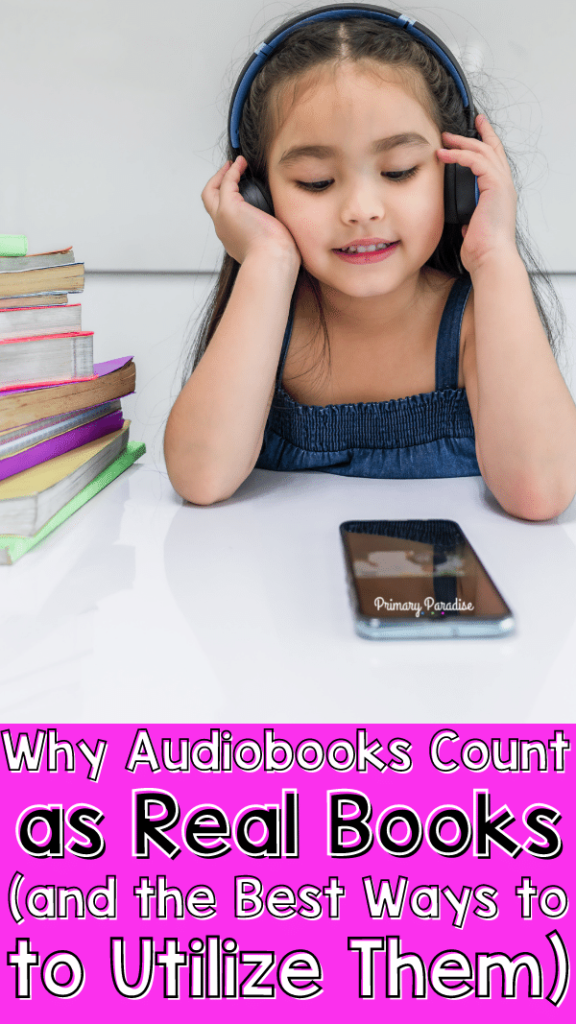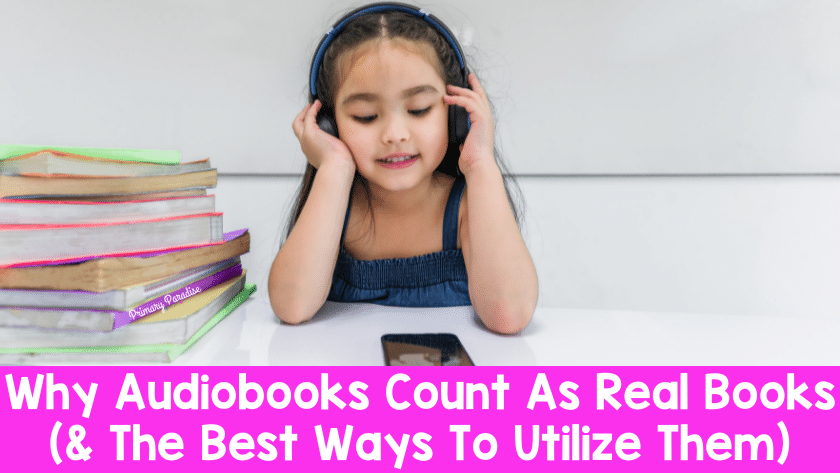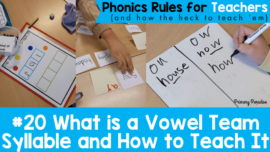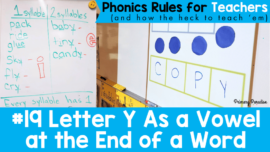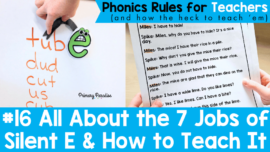Do Audiobooks count as real books? Does listening to a story have the same impact as reading it? The quick answer is yes and yes. Let’s explore why audiobooks “count” as real reading, how our brains react to listening versus reading ourselves, and how you can utilize audiobooks effectively in your classroom.
Why Audiobooks are “Real” Books
First, before we talk about why audiobooks are definitely “real” books and can help our students grow as readers, I want to add that, of course, we still want our students to spend time reading good books. Audiobooks aren’t a replacement for reading physical books, but they can be a great tool to utilize in your classroom.
Audiobooks are similar to a class read aloud
Do you read books out loud to your class? My guess is yes, and my guess is that you do it every day. Would you consider this valuable reading time? Again, my guess is absolutely! Audiobooks, while not exactly the same, work much in the same way as when you read aloud to your class. Of course, an audiobook isn’t going to stop and ask questions and clarify. But, it is a great opportunity for your students to listen to and enjoy books.
Audiobooks build comprehension skills
Research has shown that we comprehend information almost exactly the same when we’re reading ourselves and when we’re listening to someone else reading. In fact, our recall and visualization skills might be even stronger when we’re listening versus just reading on our own. So, when students are listening to reading, they’re still working on building comprehension skills.
Audiobooks remove the obstacle of decoding
In fact, audiobooks can help students who struggle to decode when they’re working on comprehension skills. Instead of having to focus all of their energy on decoding words, they can really pay attention to the story. In my experience, students who struggle with decoding also struggle with comprehension. But, when you remove the obstacle of decoding, their comprehension skills soar. Of course, these student (and all students) still need to practice decoding, and decoding in context in real books. However, unless the goal is decoding, audiobooks are a great tool for struggling readers.
Of course, we can’t only have our students use audiobooks, but I think of reading like a meal. You don’t only eat a vegetable, or only eat protein. Instead, you have a little bit of everything. Reading works the same way. Sure, reading books might be the protein, but audiobooks might be the vegetable, teacher read alouds might be the carb, and partner reading might be the dessert! It’s all worth eating, or reading!
Listening to fluent reading helps us read more fluently
The best way to become a fluent reader is to listen to fluent reading and then practice what you hear. Audiobooks give students the opportunity to listen to fluent reading. And, it gives them the opportunity to listen to many fluent readers. What better way to listen to a book than to hear the author read it themselves?
Audiobooks help reluctant readers
Audiobooks are a fantastic tool for students who are reluctant readers. They may not love sitting down and reading themselves, but taking the pressure off and letting them listen to a book can open up a whole new world. It can also open up new, harder level, high interest books to students. Sometimes reluctant readers struggle because the books that they’re able to read are not interesting to them. However, give them a high interest, more complex audiobook, and they might realize they actually love it.
Audiobooks can introduce students to new genres
Audiobooks can open up a new world to students. Personally, I always have struggled to read non-fiction texts. Even if I was interested in a topic, getting through a non-fiction book took me 3-4 times longer than a fiction book. However, when I found audiobooks, I realize that I thoroughly enjoy reading non-fiction. Does the fact that I listened to a book negate the new facts and information I learned? Absolutely not!
Audiobooks are a great way to let students dip their toes into new genres with no pressure. They don’t have to struggle to decode new terms, and we can often listen and understand more complex topics and ideas better than if we were reading them on our own.
Ways to use audiobooks in your classroom
Now that I’ve (hopefully) convinced you that audiobooks are “real” books, let’s talk about some simple ways you can use them in your classroom. In fact, you probably use them some already!
listening center
Do you use a good ol’ listening center in your classroom during Daily 5 or reading centers? Than, you’re already utilizing audiobooks! This is the simplest way to use them, and it’s also a very effective use of audiobooks. You can read exactly how I set up listening centers here, and grab a free pack of recording sheets.
early finisher activity
Another great way to incorporate audiobooks is to use them as an early finisher activity. When students are done working, you can give them the option to listen to books at your listening center, or if you have access to other technology, you can have them listen to audiobooks on an app or website. (See below for audiobook apps and website options).
brain break
Brain breaks are a great way for students who need a break from learning. You can use audiobooks as another option for a brain break. Play a few minutes of an audiobook in between lessons. Students could relax, stretch, or walk in place as they listen.
support English learners and struggling readers
As I mentioned above, audiobooks can remove boundaries to reading. This is very true for your students who are learning English as a second language, or students who are struggling readers. You can use audiobooks, either paired with text or not, to support their reading skills. Allowing them to listen to books as their reading can help improve their comprehension, introduce them to new vocabulary, and take some of the pressure off of decoding.
homework
Although I’m not a fan of homework, if you were going to send home reading homework, an audiobook might be a good option that’s pretty stress free. Students can all listen to the same chapter of a book or shorter book, and then you can discuss it in the morning. Of course, this might not be feasible due to technology limitations, but if it is, it might be a great way to encourage children to read at home with out causing extra stress for parents and students.
Places to find free audiobooks for kids
Of course, one of the limitations of using audiobooks is the logistics and potential cost. However, there are some free and inexpensive options out there. Many public libraries offer audiobooks for free with your library membership through OverDrive, so that’s a great place to start. You can also find some free audiobooks and stories on Spotify. Here are some free or inexpensive audiobook options.
- Audible kids- Free
- Story Nory- Free
- LibriVox- Free Public Domain Books
- Loyal Books- Free Public Domain books
- Storyline Online- Free
- Vooks- First Year is Free for Teachers
- Harper Collins- Inexpensive Books
You might also enjoy:
- A Simple Listening Center System that Works
- Engaging and Simple Year Long Word Work and Writing Centers
- Why and How to Use Reader’s Theater in Your Classroom
- The First Three Minutes of Guided Reading
